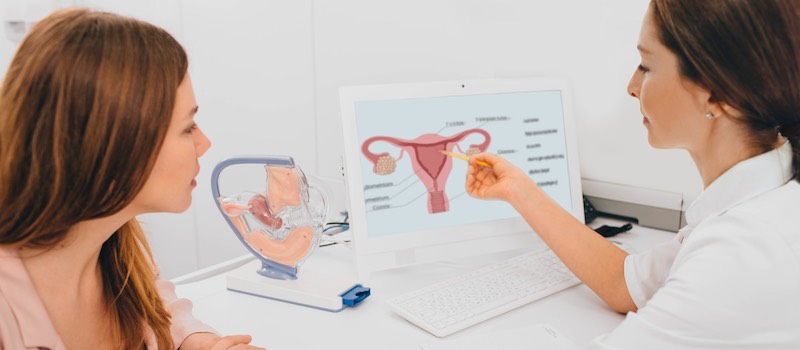Every woman who has had a urinary tract infection (UTI) knows they are no fun. They cause painful urination, pelvic pain, and frequent trips to the bathroom – even if there’s nothing left to urinate.
They can also be dangerous. If the bacteria from a UTI travel from the urinary tract to the kidneys, the infection may enter the bloodstream. That’s why it’s so important for women to get rid of the harmful bacteria causing the infection as soon as they notice UTI symptoms. So, what are some UTI do’s and don’ts? And, how can you prevent a UTI in the first place?
What is a Urinary Tract Infection?
A urinary tract infection (UTI) refers to a condition that affects any portion of a person’s urinary tract, such as the kidneys, urethra, or bladder. It typically affects women more often than men. This is because women’s urethra is shorter than men’s, making it easier for bacteria to travel up to the tract. Learn more about chronic / recurrent UTIs here.
What Causes UTIs?
Typically, any changes in hormonal levels will affect the urinary tract. Some of these changes may include:
- Having a new sexual partner
- Having your period
- Pregnancy
- Certain types of birth control, such as spermicide and diaphragm
- Menopause
Other Risks of a UTI
Hormonal changes aren’t the only cause of UTIs – they can also be caused by improper hygiene. A woman is susceptible to contracting a UTI when bacteria is spread by improper wiping after a bowel movement — wiping back to front — or by transferring bacteria from the anus to the vagina through sexual intercourse.
Regardless of gender, your chances of getting a UTI increase from other conditions as well. Some of these higher risks include:
- Diabetes
- Genetics
- Kidney stones
- Involuntary urine leakage
- Bladder catheters
UTI Complications
Since UTIs are caused by a build-up of bacteria, left untreated, that buildup can spread and cause infections within your bladder and kidneys. If the infection spreads to your kidneys, you’ll experience:
- Pain in your lower back on either side
- Fever and chills
- Nausea and vomiting
- Permanent kidney damage – if left untreated
If you or a loved one are elderly and have a UTI, then it’s crucial that a doctor is seen immediately. That’s because older individuals with a UTI may also experience an increased heart rate, difficulty breathing, brain inflammation, or organ failure. In some cases, this could even lead to death.
UTI Symptoms in Women
In most cases, you’ll never have to wonder if you have a UTI. That’s because the signs of a urinary tract infection are typically apparent and may include:
- Persistent urge to pee
- Burning sensation when urinating
- Foul-smelling and/or cloudy urine
- Sometimes passing only a couple of drops of urine despite a feeling of urgency to pee
- Pelvic pain
In some cases, you may experience asymptomatic bacteriuria, which occurs when bacteria is present in your urine but no symptoms of a UTI appear. The only indication may be an increased urge to pee. A simple urine test will be able to diagnose this condition. Make sure to attend your annual doctor visits to prevent asymptomatic bacteriuria from going undetected and causing complications.
If You Have a UTI, Consult A Doctor
Call (941) 907-3008 to Schedule an Appointment
What to Do if You Have a UTI (Drink Plenty of Fluids)
DO drink lots of water. Drinking water is one of the best ways to help your body to get rid of your UTI. Keep hydrated with at least six to eight glasses of water a day to flush out the bacteria in your urethra.
DO take a cranberry supplement. Cranberry has been proven to help with UTIs. Either a cranberry supplement or cranberry juice is effective in curing and preventing UTIs. However, if you go with the juice, make sure you get the bottle marked 100% juice. Any added sugar can worsen your symptoms.
DO empty your bladder. If you have to pee, then pee. Even if it is only a small amount, every time you urinate bacteria is flushed out.
DO take probiotics. Beat the bad bacteria with good bacteria. Probiotics will help fight off the infection by getting rid of the bad bacteria and replacing it with your body’s natural, healthy bacteria. Yogurt is a natural source of probiotics, so it’s essential to eat it when dealing with a UTI.
DO see your physician. While natural home remedies can help, seeing a physician is the best way to deal with your UTI. They’ll be able to prescribe you with antibiotics to prevent the infection from spreading.
What NOT to Do if You Have a UTI (No Alcohol or Coffee)
DO NOT have sexual intercourse. You don’t want to have sex after your UTI for at least two weeks until your symptoms have cleared up. Intercourse can worsen your symptoms and possibly make your infection worse. Sex during a UTI could also be uncomfortable or painful.
DO NOT drink alcohol. While you should get plenty of fluids, you need to stay away from alcohol. Alcoholic drinks can irritate the bladder and worsen the infection.
DO NOT eat artificial sweetener. Even when you don’t have a UTI, you should avoid artificial sweeteners. They can intensify your bladder symptoms.
DO NOT drink caffeine. You may think that you can’t get by without your cup of coffee in the morning. However, it may be beneficial to skip it while you’re suffering from a UTI. Those who regularly drink caffeine have more severe UTI symptoms. This is because caffeine has been shown to irritate the bladder.
Contact OB-GYN Women’s Centre for UTI Treatment
There is no need to suffer from a UTI. Call OB-GYN Women’s Centre today. Our caring healthcare professionals offer the very best gynecological care in the Lakewood Ranch area. Schedule an appointment here or call (941) 907-3008.


